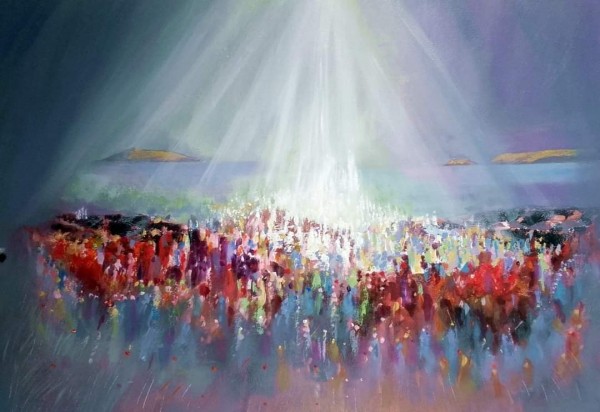
There is a revealing factor in the metaphor for Pentecost. At his coming, the Holy Spirit fills the house with noise and wind. It then divides itself in tongues of fire descending on those gathered. This double movement resolves a dangerous dichotomy, namely, whether the Holy Spirit is a communitarian and global reality or a personal and individual experience.
There is no doubt that the experience of the Holy Spirit is a call to inner motivation, to the tireless search for enthusiasm and to go out to meet those who are different, those who speak a different “language” than ours. This is the movement of the Holy Spirit descending into each of us. The Holy Spirit has to touch our hearts.
But declaring oneself individually as “filled with the Spirit”, as opposed to all those who do not have it, it is a dangerous claim—one that easily leads to intolerance and arrogance. The indispensable requirement for the arrival of the Spirit is to be “gathered” together. First, the Spirit engulfs the house and only then descends on each of the disciples.
The Holy Spirit is a collective experience of the whole Church, and even outside of it. Pentecost is a communal feast. It calls for a personal commitment, but one that compels us to be an open Church. To be open to those who are not like us. The Spirit transforms the Church, so that it is her who wishes to be understood by others. She is not waiting for others to do the effort to adapt to her language. She rather strives to speak in the languages of the world.
The Holy Spirit breaks into the Church, and fills it all, and then inspires each one of us to open up to become closer to all, to make ourselves neighbors of others and thus become witnesses of Jesus’ love.









